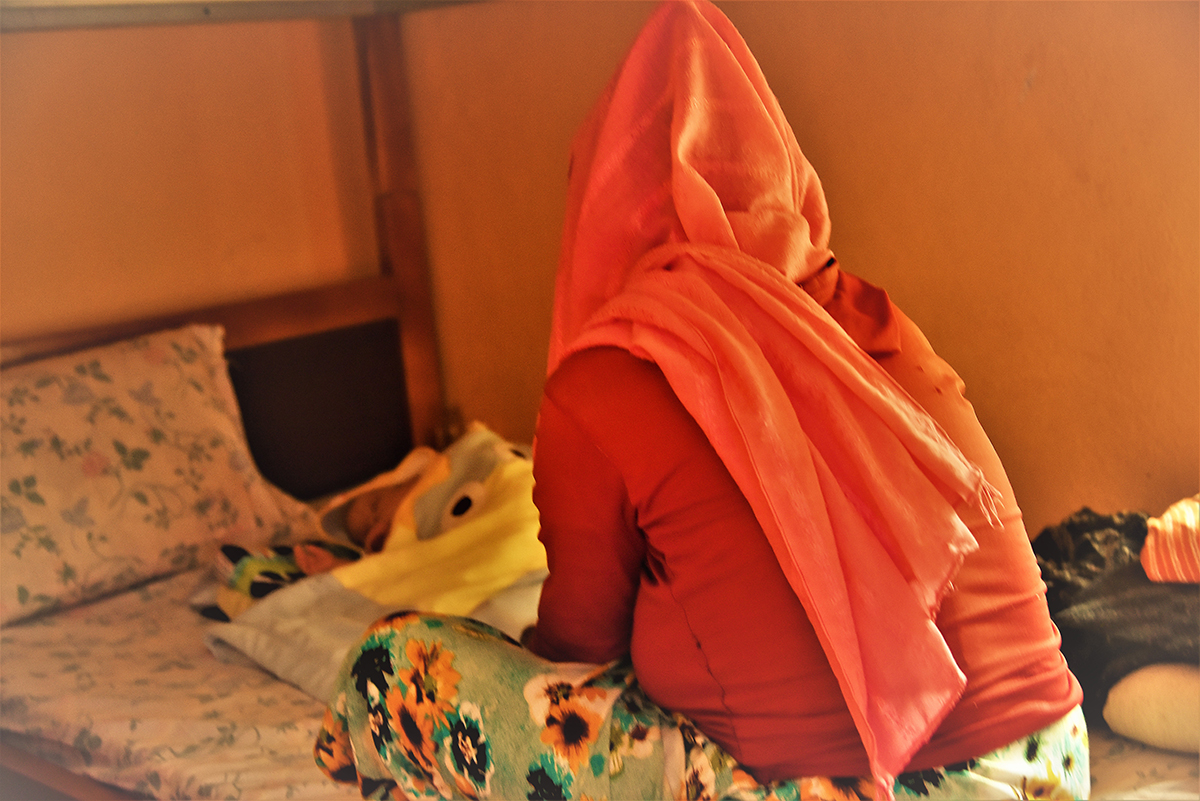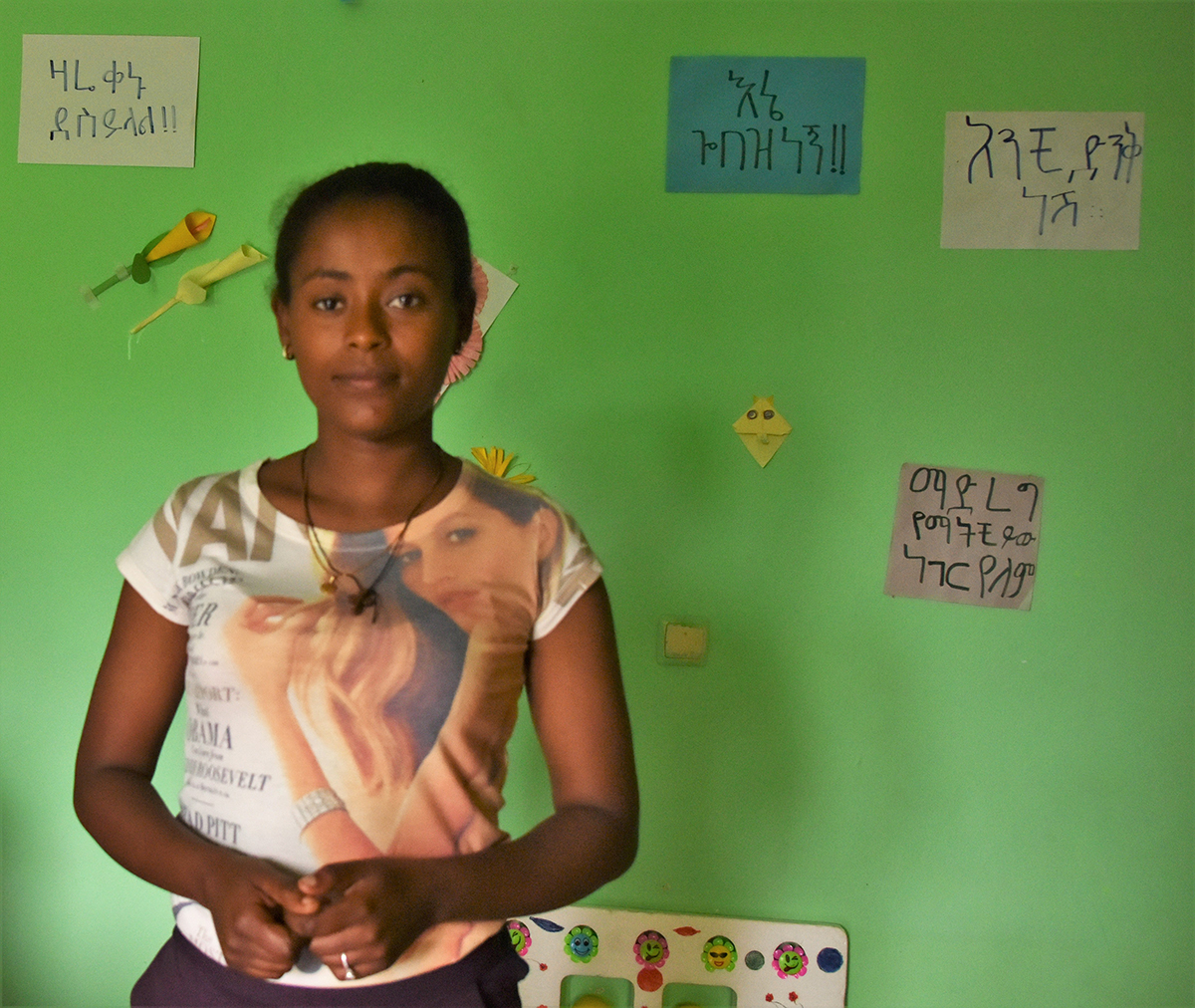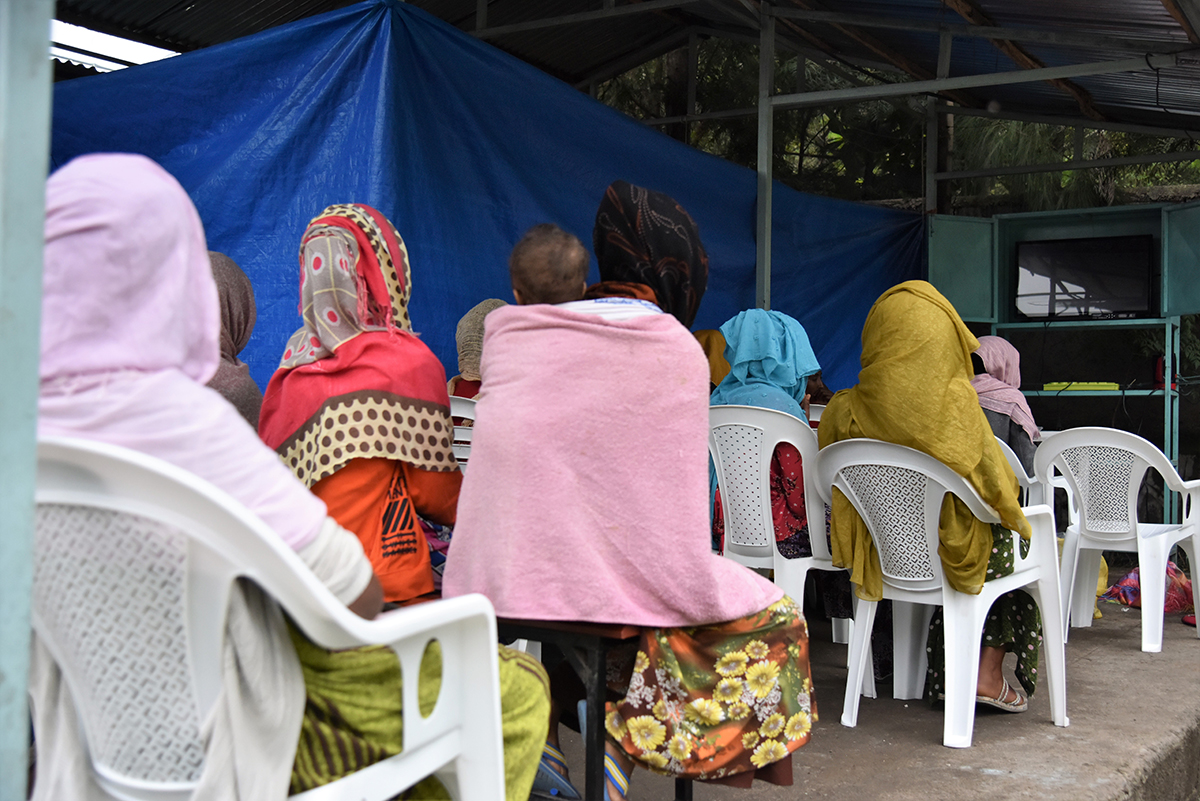Rehabilitating Survivors of Conflict-Related Sexual Violence
Date:
Muzeyen Jemal*, a 19-year-old young woman, was working as a housemaid in Woldia to support her family who lives in rural Kebele in the nearby woreda. She was going back home from the market when the soldiers found her on the road and raped her. “I told no one because they threatened me. I had no sexual experience before, so I thought nothing will happen” She kept working until it was obvious that she gained a lot of weight and kept having physical changes.

Her employers took her to the hospital, she talked to a Counselor about the sexual violence she endured for the first time. Muzeyen was brought to a safe house for survivors of sexual violence opened by the Association for Women’s Sanctuary and Development (AWSAD) with support from UN Women Ethiopia. The safe house was established to rehabilitate and reintegrate women and girl survivors of conflict-related sexual violence (CRSV) and sexual gender-based violence (SGBV) as a result of the Northern Ethiopia conflict through the provision of comprehensive services including accommodation, meals, medical support, counseling, and livelihood support. After Muzeyen found out about her pregnancy, what she asked for was to get an abortion. Unfortunately, it was too late for that. We met her at the safe house in August 2022, 20 days after she gave birth. She is staying at the shelter and has not yet decided what to do next.
Toyiba Mohammed*, a 60-year-old survivor, who also is HIV positive, left the shelter recently. She was taking care of her adult daughter’s home when the soldiers came. They ransacked the house, took valuables, and sexually assaulted her even though she told them she had HIV. As a result, she suffered from Uterine Prolapse and had surgery to remove her uterus after she came to the safe house.
“Never heard of such degrading act being done to a woman like me. It was hard to sleep and even to think about what happened let alone speak. It took a lot of counseling for me to get out of the depression.” Toyiba said. But it had changed for her now, “I now have a starting capital grant and a place to work provided by AWSAD. I cannot thank them enough for what has been done for me” she concluded.
Eyerusalem Amsal, a counseling psychologist at the safe house said getting survivors to speak about the sexual assault is the difficult part at first. They have individual and group therapy sessions for survivors as well as art and music therapy to make them forget about the trauma they have been through and see there is hope. Having others with similar experiences and socializing with them also helped them open up.
“ I know I am doing important work helping these women be themselves again. I feel grateful I got to help and felt I belong here” commented Eyerusalem on doing a challenging yet essential job.

According to Yetimwork Ayalew, Coordinator of the safe house in Woldia, the shelter for survivors was opened on January 27th, 2022, just after the Tigrayan forces left the area and in response to the urgent need for support for survivors of Conflict-Related Sexual Violence because of the conflict in the area. She said, “Many survivors needing support started coming to us all the way from Dessie, another city in South Wollo, where we had another safe house but was in full capacity”.

However, women affected by the conflict, despite the widespread sexual violence reported, were not seeking the support and services provided by the shelter. Thus, AWSAD reached out to the zonal office of Women and Children’s Affairs (BoWCA) and Kebeles to raise awareness of available services through women community mobilizers. As a result of these efforts, women started to show up and in a few days they had 40 women survivors admitted into the safe house. Some of them were pregnant and needed an abortion [ they have a right to get one at a health institution as per Ethiopian law abortion for pregnancies as the result of rape is permissible] while others were taken to the hospital for infections and other issues related to assault.
Yetimwork mentioned that 416 survivors have been rehabilitated by the services at the safe house.
A joint assessment by the Ethiopian Human Rights Council and Office of the High Commission for Human Rights, released on 3rd November 2021 disclosed that hundreds of women were sexually violated by all actors involved in the conflict in Northern Ethiopia.
This project, which is part of the UN Central Emergency Fund ( CERF) global grant, aims to ensure that women and girls who have experienced/are experiencing GBV or are at risk of GBV benefit from the provision of and access to quality services and are empowered to increasingly engage in decision-making and leadership in GBV response, mitigation, and prevention.
Outcomes of this project, which are close to the Sustainable Development Goals, particularly SDG 5 on gender equality, and SDG 3 on good health and well-being, focuses on social norm programming that will contribute to protection and empowerment of crisis-affected women and girls in Amhara, Afar, and Tigray regions of Ethiopia; scaling up partnerships with local women-led organisations (WLOs) / women rights organisations (WROs) and strengthening their capacities to participate in humanitarian decision-making; increasing access and improving quality of services provided to crisis-affected women and girls both in relation to protection and livelihoods.